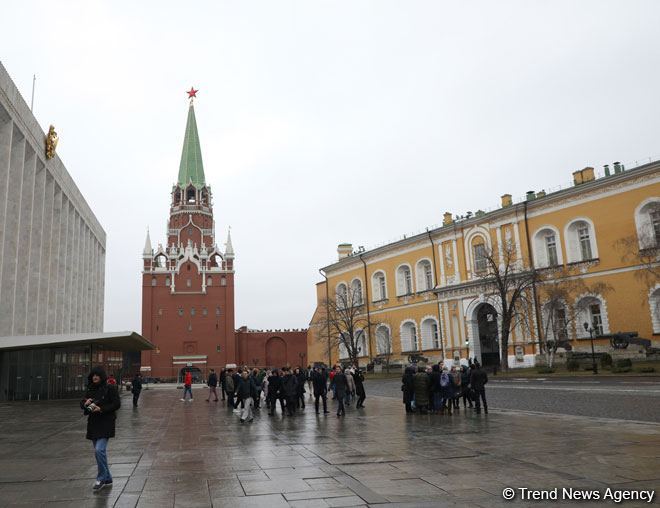BAKU, Azerbaijan, June 30. On the morning of June 27, Russian security forces simultaneously carried out raids on more than ten apartments where Azerbaijanis lived, including the family of the Safarovs from Aghdam. As a result of the operation, two brothers - Ziyaddin and Huseyn - were killed, and several others were hospitalized.
From the very first hours after the incident, discussions began to unfold in the Russian media, often marked by an unhealthy, xenophobic tone. Notably, Deputy Chairman of the State Duma Pyotr Tolstoy called for “harsher measures” against Azerbaijanis and described the Azerbaijani Foreign Ministry’s reaction to the events as “interference in Russia’s internal affairs”. Tolstoy emphasized that Russia is “free to act as it sees fit” and that Azerbaijan “has no right to dictate terms”.
First, his use of the dismissive phrase “so-called Azerbaijani diaspora” clearly reflects a contemptuous attitude.
Second, the operation was referred to as a “lawful measure”, while the Azerbaijani Foreign Ministry’s summoning of the Russian ambassador was labeled “crossing a red line”. In reality, those affected were Azerbaijani citizens who had not renounced their citizenship - meaning Baku has every right to defend their interests.
This raises several fundamental questions. Why was the operation carried out with such violence? At 5 a.m., using firearms against individuals accused of a crime committed 24 years ago. Was there any armed resistance that would justify the killing of two brothers in their own home and the beating of numerous detainees? Why were 50 people simultaneously subjected to raids - including two individuals who, as it later emerged, were just 4 or 5 years old at the time of the alleged crime? Was this truly a carefully planned investigative operation, or rather an act of intimidation and a show of force?
Tolstoy insists that the detainees are Russian citizens and that “Moscow is entitled to do whatever it deems necessary”. However, this statement stands in stark contrast to Russia’s own foreign policy practices, which often involve defending Russian-speaking populations abroad. In fact, the argument of “protecting compatriots” has been used as justification for the occupation of Ukrainian territories. This raises a logical question: why does Russia consider it acceptable to protect its citizens abroad but denies Azerbaijan the same right regarding its citizens living in Russia?
Particularly cynical is the comparison between Azerbaijan and countries like France and Germany, which Russian officials routinely refer to as “unfriendly nations”. Azerbaijan is a CIS member and Russia’s partner under the Declaration on Allied Interaction signed in 2022. How can an ally be placed in the same category as adversaries?
Tolstoy described Azerbaijani cultural centers as “enemy nests” and called for their closure. Meanwhile, in Azerbaijan, the Russian Cultural Center (“Russian House”) was shut down solely for legal compliance reasons, without any xenophobic statements about Russian culture.
It is also important to note that the case is being handled by the FSB. Why is the FSB involved in investigating a crime committed in the early 2000s? This might indicate an attempt to frame the operation as a counterterrorism or anti-sabotage measure targeting a specific ethnic group, thereby heightening tensions.
All the details surrounding the crime committed against Azerbaijanis in Yekaterinburg point to extreme brutality by Russian police and OMON forces. In the 1990s, OMON and municipal police were known for their violence, but today this tradition continues more openly and in even more horrifying forms. The term “ethnic criminality”, coined by Russian law enforcement, is an attempt to lay a legal foundation for portraying people of different nationalities as criminals by default. In doing so, Russia lays the groundwork for its policy of ethnic cleansing - one it is already carrying out and appears poised to expand.







